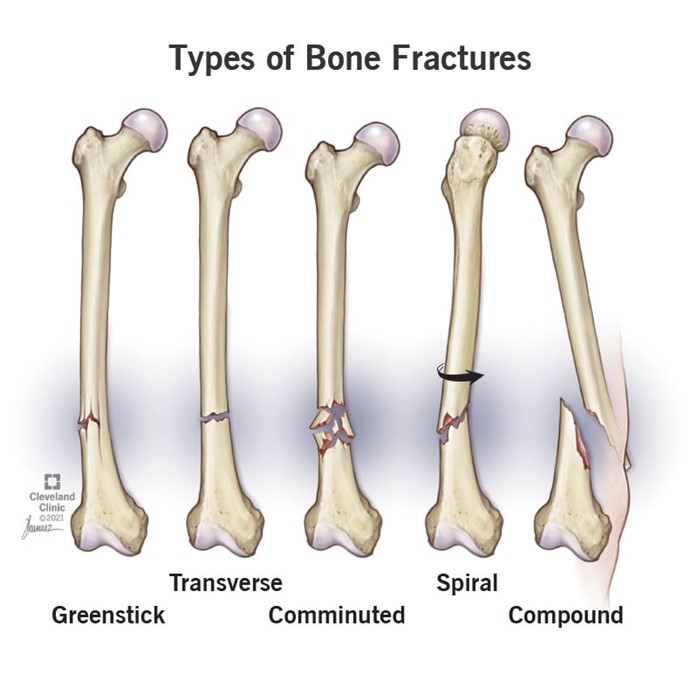A nurse is teaching a client ways to manage anorexia while receiving radiation therapy. Which of the following statements by the client shows an understanding of the teaching?
“I will limit high-calorie supplements to between meals.”
“I will avoid overeating during 'good' days.”
“I will consume nutrition-dense foods first.”
“I will eat hot foods rather than cold foods.”
The Correct Answer is C
Choice A reason: Limiting high-calorie supplements to between meals is not a good strategy for managing anorexia while receiving radiation therapy because it can reduce the appetite and intake of regular meals, which are more nutritious and balanced. High-calorie supplements should be used as an addition to, not a replacement for, regular meals.
Choice B reason: Avoiding overeating during 'good' days is not a good strategy for managing anorexia while receiving radiation therapy because it can cause discomfort, nausea, or vomiting, which can worsen anorexia and affect the tolerance of radiation therapy. Eating should be based on hunger and satiety cues, not on good or bad days.
Choice C reason: Consuming nutrition-dense foods first is a good strategy for managing anorexia while receiving radiation therapy because it can ensure adequate intake of calories, protein, vitamins, and minerals, which are essential for healing and recovery. Nutrition-dense foods are those that provide high amounts of nutrients per serving, such as eggs, cheese, nuts, beans, and meat.
Choice D reason: Eating hot foods rather than cold foods is not a good strategy for managing anorexia while receiving radiation therapy because it can irritate the mouth and throat, which may be inflamed or sore due to radiation therapy. Cold foods are more soothing and refreshing for the mouth and throat, such as ice cream, yogurt, smoothies, and popsicles.
Nursing Test Bank
Naxlex Comprehensive Predictor Exams
Related Questions
Correct Answer is B
Explanation
Choice A reason: Consume ten percent of total calories from saturated fat is not a correct instruction for the DASH diet. The DASH diet recommends limiting saturated fat intake to less than six percent of total calories, as saturated fat can raise blood cholesterol and increase the risk of heart disease.
Choice B reason: Consume foods that are high in calcium is a correct instruction for the DASH diet. The DASH diet emphasizes eating foods that are rich in calcium, such as low-fat dairy products, leafy green vegetables, and fortified cereals. Calcium helps regulate blood pressure and prevent osteoporosis.
Choice C reason: Increase intake of refined carbohydrates is not a correct instruction for the DASH diet. The DASH diet advises reducing intake of refined carbohydrates, such as white bread, white rice, and sweets. Refined carbohydrates can increase blood sugar and insulin levels and contribute to obesity and diabetes.
Choice D reason: Limit sodium intake to 3,200 milligrams per day is not a correct instruction for the DASH diet. The DASH diet recommends limiting sodium intake to less than 2,300 milligrams per day, or even lower to 1,500 milligrams per day for some people. Sodium can increase blood pressure and fluid retention and damage the kidneys and blood vessels.
Correct Answer is B
Explanation
Choice A reason: Dry eyes are not caused by vitamin D deficiency, but by other factors such as aging, medication, environmental conditions, or eye diseases. Vitamin D does not have a direct role in eye health or function.
Choice B reason: Fractures are caused by vitamin D deficiency, as vitamin D helps the body absorb calcium, which is essential for bone health and strength. Vitamin D deficiency can lead to osteoporosis, a condition in which the bones become brittle and prone to breaking.
Choice C reason: Infection is not caused by vitamin D deficiency, but by other factors such as exposure to pathogens, weakened immune system, or poor hygiene. Vitamin D may have some role in modulating immune responses, but it is not a primary factor in preventing infection.
Choice D reason: Swelling is not caused by vitamin D deficiency, but by other factors such as injury, inflammation, fluid retention, or allergic reaction. Vitamin D does not have a direct role in regulating fluid balance or reducing inflammation.

Whether you are a student looking to ace your exams or a practicing nurse seeking to enhance your expertise , our nursing education contents will empower you with the confidence and competence to make a difference in the lives of patients and become a respected leader in the healthcare field.
Visit Naxlex, invest in your future and unlock endless possibilities with our unparalleled nursing education contents today
Report Wrong Answer on the Current Question
Do you disagree with the answer? If yes, what is your expected answer? Explain.
Kindly be descriptive with the issue you are facing.
